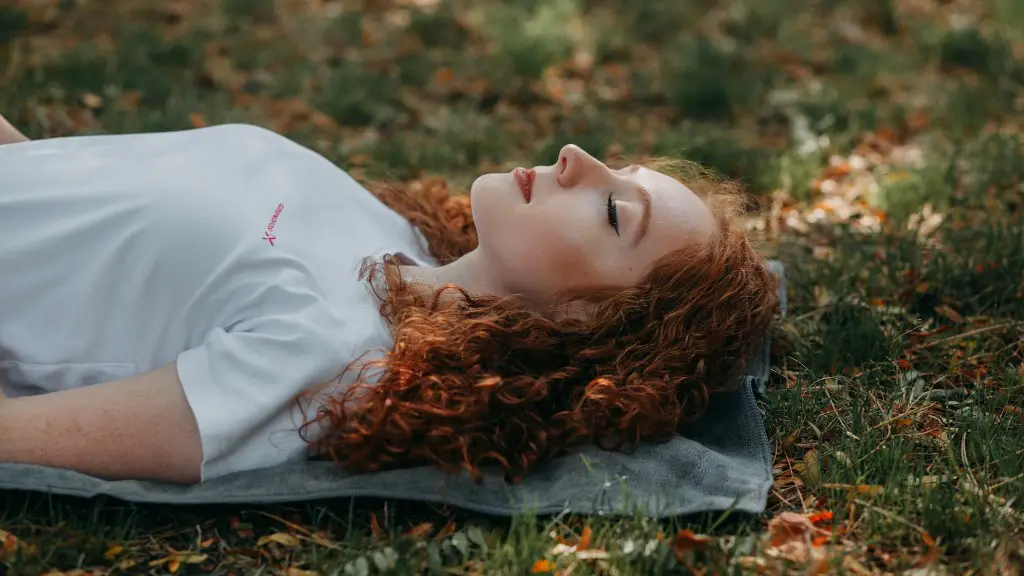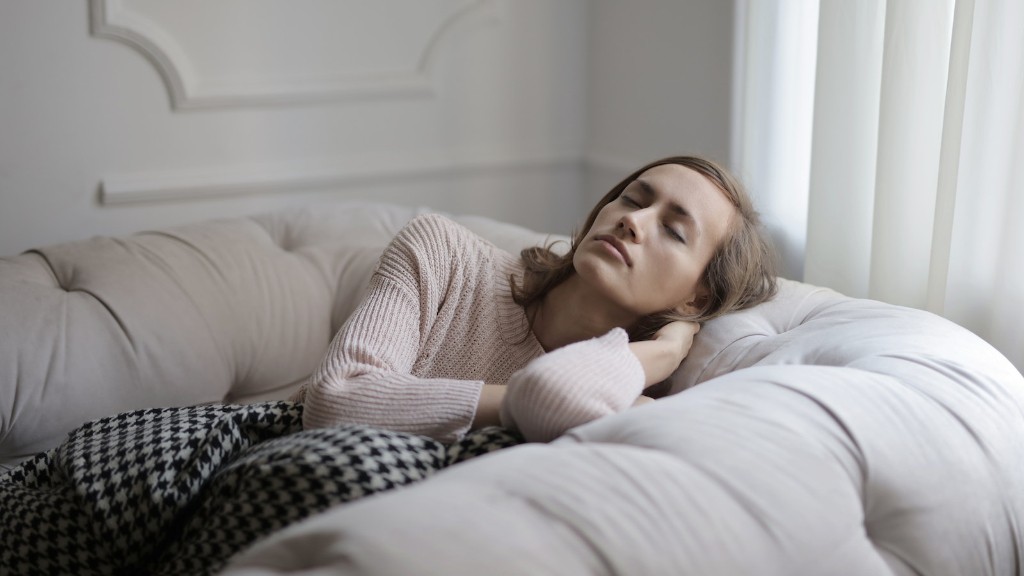Fever dreams are a type of dream that can occur when you have a fever. They are usually more intense and vivid than normal dreams, and may be strange or frightening. Fever dreams are thought to be caused by the changes in brain activity that occur during a fever.
Fever dreams are a type of hallucination that can occur during a fever. The Mayo Clinic states that during a fever, your body temperature increases, which can cause changes in your brain that lead to hallucinations. These hallucinations can be vivid and lifelike, and often involve people or things that you know. Fever dreams are more common in children than adults, and usually occur during a fever from a viral infection, such as the flu.
Do fever dreams mean anything?
There is no one-size-fits-all answer to this question, as the meaning of a fever dream will vary depending on the individual’s personal experiences, beliefs, and interpretation of the dream. However, some experts believe that fever dreams may offer a way for the subconscious mind to process and make sense of stressful or emotionally charged experiences. In other words, fever dreams may provide a way for the dreamer to work through difficult life events or issues in a safe, symbolic way. Additionally, some research suggests that fever dreams may be beneficial for memory consolidation and creativity. So, although the meaning of a fever dream is unique to the individual, there may be some underlying benefits to these types of dreams.
Elevated brain temperatures can disrupt the brain’s normal cognitive processes, which can lead to dreams with unusual and unpleasant qualities. This is because the brain is not functioning well during high fever.
Is a fever dream good or bad
Fever dreams tend to be more negative and emotionally intense than regular dreams. This may be due to the fact that fevers can cause changes in brain activity.
Fever dreams are a type of vivid dream that can be caused by a fever. These dreams can be particularly intense and may feel real. Some common themes in fever dreams include being chased, feeling suffocated, or being in danger.
How do you stop a fever hallucination?
If you have a fever and are experiencing hallucinations, there are a few things you can do at home to help ease your symptoms. Taking acetaminophen or ibuprofen can help to reduce your fever. It is also important to stay hydrated by drinking lots of fluids. Taking tepid baths or using cool compresses can also help to bring down your fever. If your symptoms do not improve after trying these home remedies, it is important to seek medical attention.
Cortisol is a hormone that is closely linked to your immune system function. Cortisol levels are higher during the day and this suppresses your immune activity to a large degree. When cortisol levels go down at night, your immune system is more active in fighting illness or infection. This is why fevers spike at night.
How should you sleep with a fever?
When you are sick, it can be difficult to get a good night’s sleep. However, there are a few things you can do to help improve your sleep. First, try to sleep with your head propped up on a pillow to avoid congestion. Additionally, avoid taking cold medications before bed as they can often keep you awake. Finally, try taking a hot shower or bath before you go to bed to help you relax and feel more comfortable. Using a humidifier in your room can also help to prevent your airways from becoming congested.
Our study found strong associations between increased nightmares and those reporting having had COVID-19. This suggests that the more people were affected by COVID-19, the greater the impact upon dream activity and quality of life.
What are terrifying fever dreams
Fever dreams are often described as disturbing and stressful experiences. While there is no guarantee that you can completely prevent a fever dream, treating your fever may help control these vivid nightmares.
The bizarre and intense nature of fever dreams is related to the high body temperature. Fever has an effect on the cognitive processing of our brain during sleep. Since our brain is unable to perform normally during a high fever, it tends to produce dreams which are unpleasant and unusual in nature.
How long does a fever dream last?
There is no one definitive answer to this question. From a medical perspective, fever dreams occur when body temperature increases above 101°F when you are sick. In most cases, fever dreams won’t last for long. However, everyone is different. If you find your dreams are lingering for longer than they should and are causing you discomfort, consider seeing a doctor.
A high temperature can cause a lot of problems for a person. It can cause confusion and hallucinations, and also make them irritable. This can be extremely dangerous, and it is important to make sure that you get help if you or someone you know has a high temperature.
How do you snap out of hallucinations
If you’re dealing with someone who is experiencing a frightening hallucination, try to distract them with a walk or move to another room. Bright, well-lit areas with other people present can help to ease the hallucination. Engage the person in music, conversation or activities that you both enjoy.
If you have a fever, there are a few things you can do to try to bring it down. You can take over-the-counter medications such as aspirin, naproxen, ibuprofen, or acetaminophen according to package directions. Drinking plenty of fluids and resting will also help. You can also try to keep yourself cool by using a cool compress or taking a cool bath. If your fever is higher than 103 degrees or you have other symptoms like chest pain, shortness of breath, or abdominal pain, you should call 911.
Should you use a blanket if you have a fever?
Dress light when you have a fever. Bundling up too much can make it harder to reduce your fever. If you have chills, try wearing a single, light layer and using one lightweight blanket. If your temperature is over 103ºF, let your doctor know.
Your temperature will feel elevated as your fever breaks, but this is just because your body is releasing the excess heat. The thermostat in your brain will be turned back down to normal, but it will take some time for your body to cool down completely. You may feel hot and sweaty until your temperature falls to match the thermostat.
What are the stages of a fever
A fever is a rise in your body temperature above its normal level. Your body temperature is set by a balance between the heat you produce and the heat you lose. A fever occurs when that balance is disturbed and you make more heat than you lose. The 3 phases of fever are: Your body reacts and heats up Your blood and lymphatic system make white blood cells, which fight infection The fever levels off In the second phase of a fever, the amount of heat you make and lose is the same Cooling down.
A fan can help dry out your mouth, nose, and throat, which can lead to an overproduction of mucus. This could cause headaches, a stuffy nose, sore throat, or even snoring. While a fan won’t make you sick, it may worsen symptoms if you’re already under the weather.
Conclusion
Fever dreams are a type of dream that can occur when you have a fever. They may be more vivid than your usual dreams and can be about anything, including things that you’re worried about or have been thinking about a lot. It’s not clear why fever dreams happen, but they may be a way for your brain to process all the information it’s taking in while your body is fighting off an infection.
There is still much unknown about why fever dreams happen, but there are some theories. One theory is that the increased body temperature during a fever can cause changes in the brain that lead to strange and vivid dreaming. Another theory is that fever dreams are simply a side effect of being sick and feeling awful. Whatever the reason, fever dreams can be incredibly strange and unsettling.





